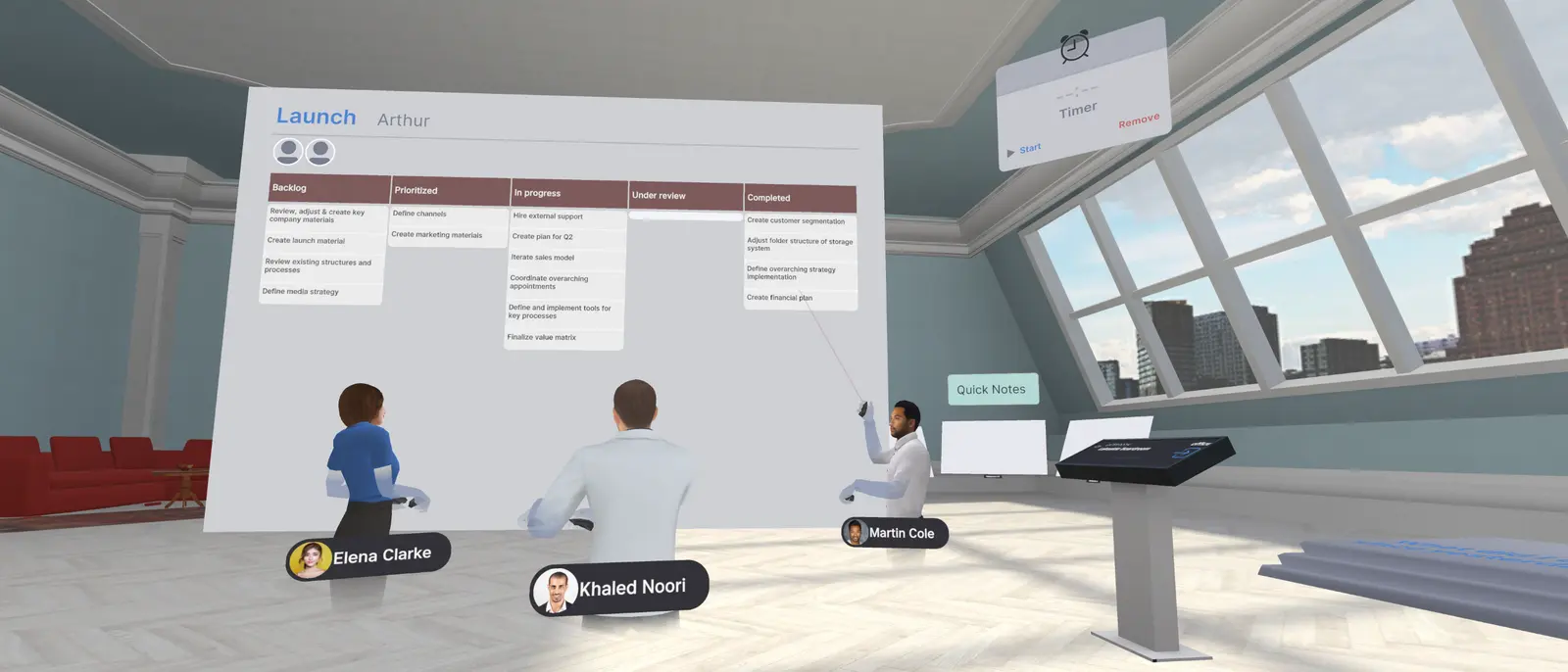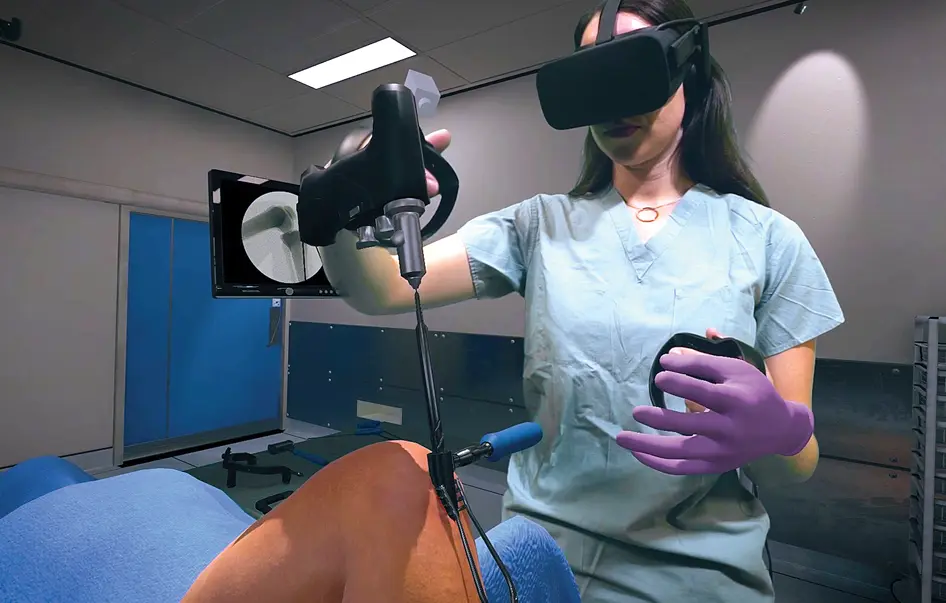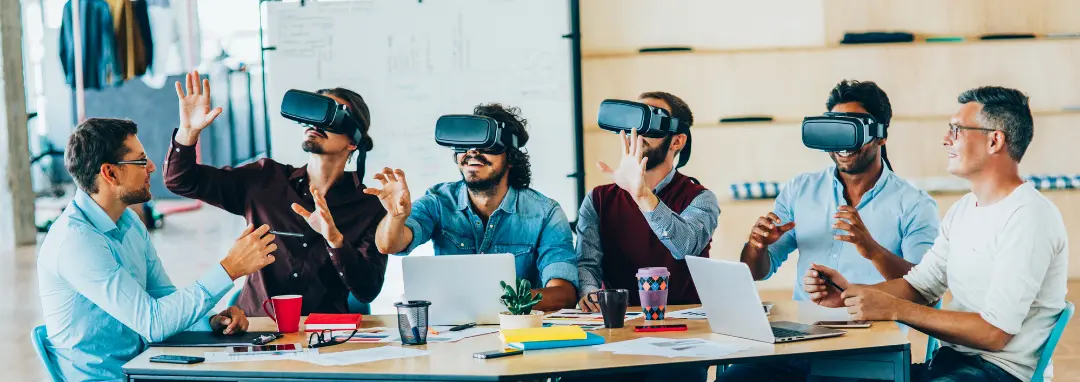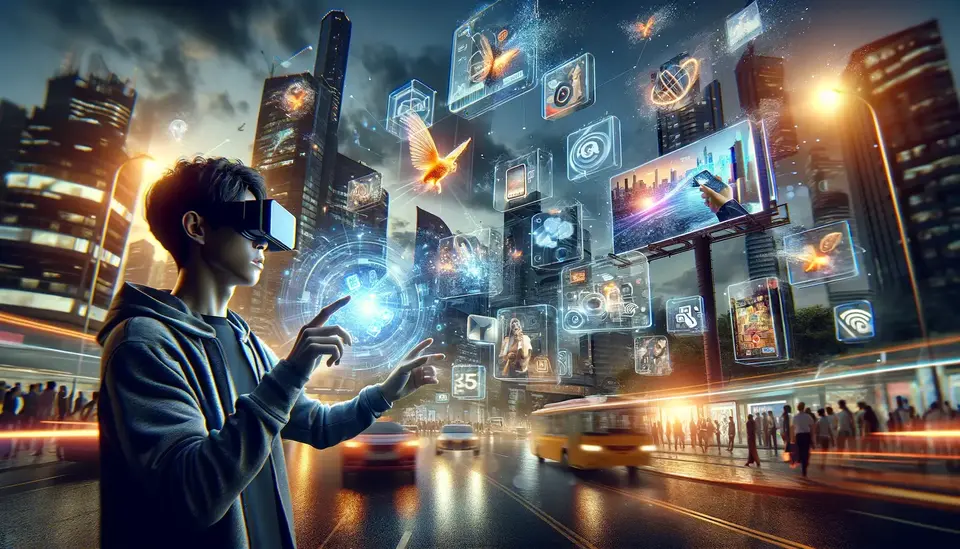How can companies use Virtual Reality?
Posted on March 22, 2023 3 minutes 541 words
Table of contents
Virtual Reality (VR) has come a long way since its inception. It is no longer just a fascinating concept in science fiction or an entertaining gaming experience. VR has found its way into various industries, revolutionizing the way businesses operate, train their staff, market their products, and engage with their customers. In this blog post, we will explore the diverse applications of VR in the business world and discuss how companies can harness the power of this technology to drive success.
Remote Collaboration and Virtual Meetings
With remote work becoming increasingly common, VR has emerged as a powerful tool for facilitating more engaging and interactive virtual meetings. Platforms like Spatial and VirBELA offer immersive environments where teams can collaborate, brainstorm, and participate in workshops as if they were physically present together. These virtual spaces foster better communication and collaboration, leading to improved efficiency and productivity.

Product Design and Prototyping
Companies across various industries, including automotive and architecture, are using VR to design, prototype, and test their products. Designers can visualize and manipulate 3D models in a virtual environment, allowing for faster iterations and more accurate representations. This not only saves time and resources but also reduces the environmental impact associated with traditional prototyping methods.
Marketing and Customer Engagement
VR has opened up new avenues for creating unique marketing campaigns and product demonstrations. Brands like Coca-Cola, IKEA, and Marriott have successfully implemented VR experiences that immerse customers in their brand’s world and showcase their products in innovative ways. These campaigns not only capture customer attention but also create lasting impressions and deeper emotional connections with the brand.
Training and Development
One of the most promising applications of VR in the business world is immersive, hands-on training and skill development. Industries such as healthcare, aviation, construction, and manufacturing have already started leveraging VR for training purposes. For instance, medical professionals can practice complex surgical procedures in a risk-free environment, while pilots can perfect their skills in virtual cockpits before taking to the skies.

Virtual Showrooms and E-commerce
Businesses are increasingly turning to virtual showrooms to present their products in an immersive, interactive environment. Companies like Audi and Shopify have launched VR showrooms that let customers explore, customize, and even “test-drive” products from the comfort of their homes. This approach reduces overhead costs associated with physical showrooms and provides a more engaging and personalized customer experience.
Employee Wellness and Stress Reduction
Workplace stress is a significant concern for many organizations, and VR offers a unique solution for promoting employee well-being. Applications like Guided Meditation VR and Nature Treks VR provide immersive relaxation and meditation experiences, helping employees unwind and recharge. By incorporating VR into wellness programs, companies can support employee mental health and foster a more positive work environment.
Conclusion
The potential benefits of integrating VR technology into various aspects of a company’s operations are immense. From enhancing training and collaboration to revolutionizing marketing and customer engagement, VR holds the key to unlocking new levels of success in the business world. As the technology continues to evolve, businesses must explore the diverse applications of VR and seize the opportunities it presents to stay ahead of the competition.








